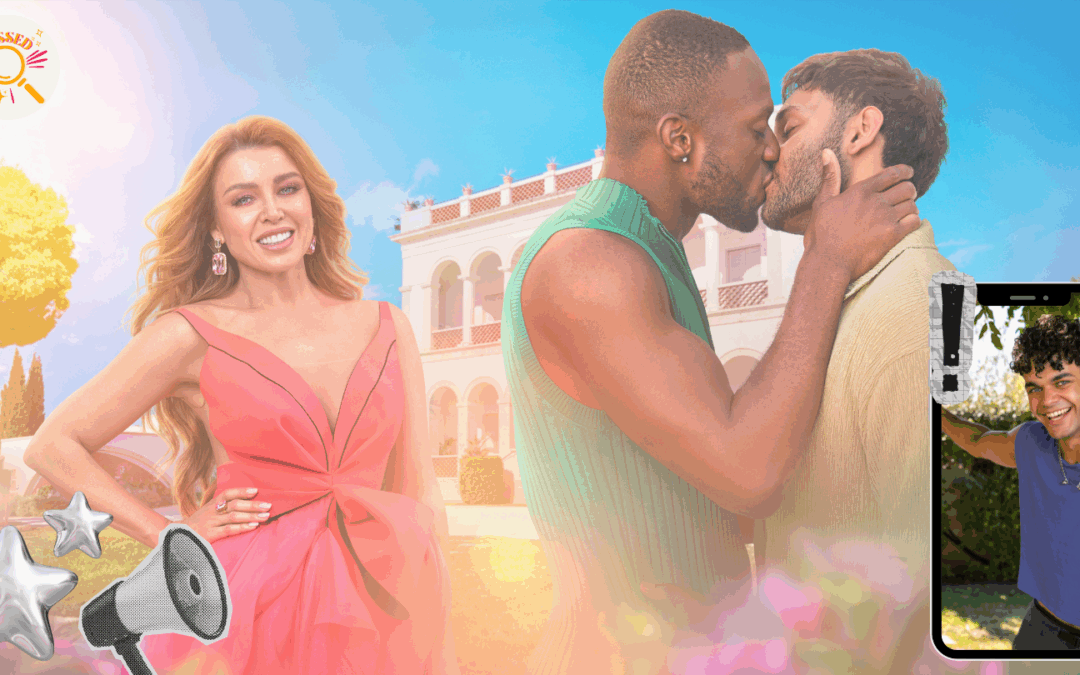Whether you’ve been watching since the early days or you’ve just discovered it through memes and tiktok clips, Love Island has become one of the biggest reality TV franchises in the world. But how did it become such a phenomenon, and what really goes on in the villa? This is your ultimate guide to all things Love Island.
What is love island?
Love Island is a reality dating show where a group of singles (known as Islanders) live together in a luxury villa, cut off from the outside world, while trying to find love (and win £50,000). They pair up, complete challenges, and face dramatic recouplings until one couple is crowned the winner by public vote.
The UK version originally aired in 2005 but rose to massive popularity after its reboot in 2015. Since then, it’s launched multiple international versions and cemented itself as a summer TV staple.
How does Love Island work?
The core premise of the show revolves around coupling: to remain in the villa, contestants must be in a couple. Throughout the series, new Islanders arrive, and existing couples are tested through various challenges, dates, and the infamous recoupling ceremonies. Public voting plays a significant role, with viewers influencing who stays, who leaves, and ultimately, who wins.
The winning couple receives a cash prize, but the real allure lies in the social dynamics, emotional rollercoasters, and the exploration of modern relationships under constant surveillance.
When is Love Island 2025 on?
ITV have confirmed that Love Island 2025 is due to premiere on Monday 9th June 2025, airing every night at 9pm on ITV2 and streaming on ITVX. The show’s consistent scheduling has made it a staple of British summer television, offering viewers a daily dose of romance, drama, and social commentary.
As the premiere approaches, ITV will release official announcements, so fans should stay tuned to the network’s channels for updates.
Where is Love Island filmed?
The primary filming location for Love Island is a luxurious villa in Mallorca, Spain. The villa is designed to facilitate both intimacy and drama, featuring communal bedrooms, open-plan living areas, and the iconic fire pit for recoupling ceremonies.
For special editions like Love Island: All Stars, filming has taken place in South Africa. These picturesque settings not only provide a stunning backdrop but also create a controlled environment where social dynamics can unfold under the watchful eye of the cameras.
Are Love Islanders paid?
Yes, contestants on Love Island receive money for their participation. As of 2024, it’s reported that Islanders are paid approximately £375 per week to cover expenses like rent and bills back home, not to mention the winners receive £50k to split between them!
However, the financial incentives extend beyond the villa. Post-show, many contestants leverage their newfound fame into business opportunities, including brand endorsements, social media influencing, and television appearances. The show’s platform can significantly boost a contestant’s public profile, offering a springboard into various facets of the entertainment and fashion industries.
Who hosts Love Island?
Love Island is hosted by Maya Jama, who took over the role in 2023.
Are there other versions of Love Island?
The success of the UK version of Love Island has led to the creation of several international editions. These include Love Island USA, Love Island Australia, Love Island Germany, and Love Island South Africa, among others.
Each version adapts the core format to suit its cultural context while maintaining the show’s signature elements of romance, competition, and social dynamics. The global expansion of Love Island underscores its universal appeal and its ability to tap into the complexities of modern dating across different societies.
Why do people get so emotionally invested in love island?
Love Island taps into fundamental aspects of human psychology, particularly our innate interest in social relationships and emotional narratives. The show’s format creates a microcosm where viewers can observe the formation, development, and dissolution of romantic connections in real-time. This element, combined with the relatability of the contestants’ experiences, fosters a deep emotional engagement.
Moreover, the interactive component where viewers vote and influence outcomes, enhances this investment, making audiences feel like active participants in the unfolding drama. The show also prompts discussions on topics like loyalty, trust, and the complexities of modern relationships, resonating with viewers’ personal experiences.
Which Love Island couples are still together?
While many Love Island couples part ways after the show, several have maintained long-term relationships. Notable examples include:
- Alex Bowen and Olivia Buckland (Love Island UK, Season 2): Married in 2018 and have a child together.
- Nathan Massey and Cara De La Hoyde (Love Island UK, Season 2): Married in 2019 and have two children.
- Camilla Thurlow and Jamie Jewitt (Love Island UK, Season 3): Married in 2021 and have children.
- Jess Shears and Dom Lever (Love Island UK, Season 3): Married in 2018 and have children.
These enduring relationships demonstrate that, despite the show’s dramatic environment, genuine connections can form and flourish beyond the villa.
What is Casa Amor and why is it so iconic?
Casa Amor is a twist introduced midway through the Love Island series. During this segment, the existing couples are separated, with one group moving to a new villa (Casa Amor) where they meet a fresh batch of singles.
This setup tests the strength and loyalty of existing relationships, often leading to dramatic recouplings and emotional confrontations. The unpredictability and high stakes of Casa Amor have made it a fan-favorite element, generating some of the most memorable moments in the show’s history. It serves as a catalyst for drama and an ultimate test for the Islanders’ commitments.
How has love island changed pop culture?
Love Island has significantly influenced contemporary pop culture, particularly in the UK. The show has introduced new slang, fashion trends, and social media behaviours. Phrases like “mugged off” and “grafting” have entered everyday vocabulary, while contestants often become influencers, shaping trends in beauty and lifestyle. The show’s format has also sparked conversations about mental health, body image, and the ethics of reality television.
Is Love Island scripted?
Love Island is not scripted in the traditional sense; contestants are not given lines to recite. However, producers are said to influence the show’s direction by encouraging certain conversations or situations to enhance the narrative. This approach ensures a steady flow of drama and engagement while maintaining the authenticity of the contestants’ interactions.
Can I apply to be on Love Island?
Yes, applications for Love Island are typically open to the public. Contestants must be at least 18 years old, single, and legal residents of the show’s country. The application process involves submitting personal information, photos, and a video showcasing your personality. Selected applicants undergo interviews and background checks.
Keep an eye on ITV’s official channels for announcements regarding application openings.
What are the most iconic Love Island moments?
Love Island has delivered numerous unforgettable moments that have captivated audiences:
- “I was coming back here to tell you I loved you”: A dramatic declaration from Amy Hart to Curtis Pritchard after Casa Amor, that became a meme sensation.
- Casa Amor recouplings: The tension and heartbreak during these episodes are legendary.
- “I’m loyal, babes”: A phrase from Georgia Steel that sparked widespread discussion about fidelity and self-awareness.
- Unexpected departures: Contestants leaving the villa voluntarily, challenging the show’s format.










